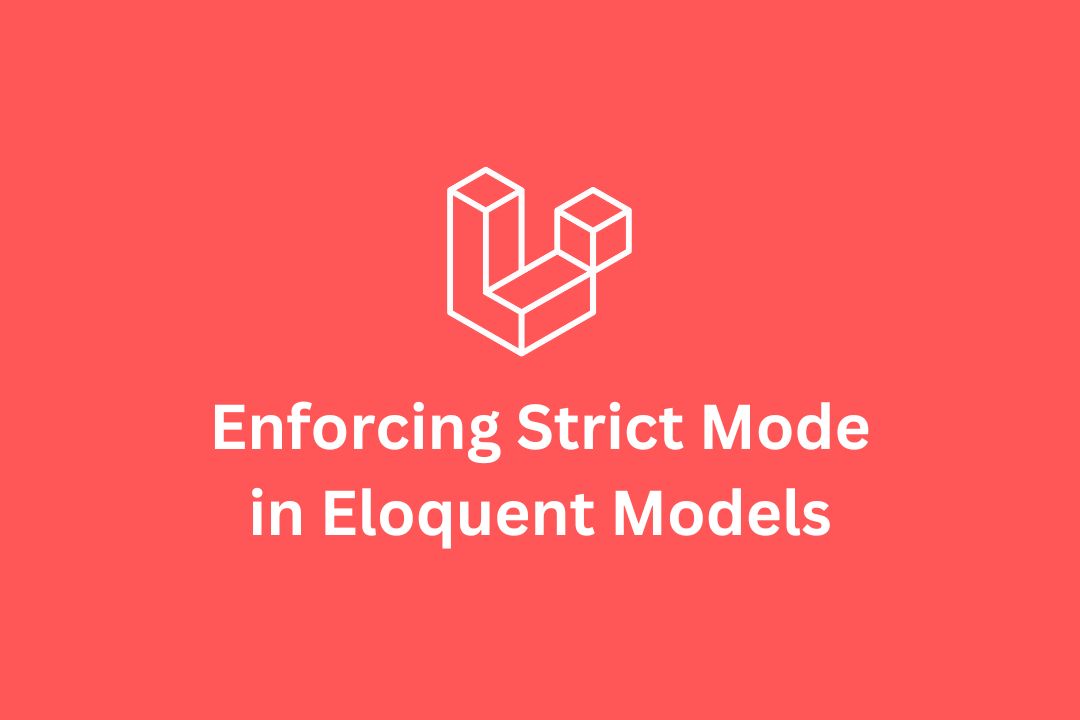In Laravel, Eloquent models offer a convenient way to interact with databases. However, by default, they allow a certain level of flexibility that could sometimes lead to hidden issues. One way to improve debugging and maintain strict coding standards is by enabling strict mode on Eloquent models. This is where Model::shouldBeStrict() comes into play.
What is Model::shouldBeStrict()?
The Model::shouldBeStrict() method, introduced in Laravel 9, forces your Eloquent models to throw exceptions when certain unexpected conditions are encountered. In simpler terms, it makes Eloquent “strict,” preventing unintended or incorrect behaviour from going unnoticed during development.
Why Use Strict Mode?
When strict mode is enabled:
- Lazy loading violations: Eloquent will throw an exception if you attempt to lazy load a relationship that isn’t already loaded. This helps prevent performance issues, as lazy loading can lead to “N+1” query problems.
- Mass assignment violations: If you forget to define
fillableorguardedproperties and attempt to mass-assign attributes, an exception will be thrown instead of silently failing. - Missing attributes: Accessing an attribute that doesn’t exist on the model will throw an error, ensuring you don’t accidentally reference incorrect fields.
How to Enable Strict Mode in Laravel
To enable strict mode globally, you can call Model::shouldBeStrict() within the AppServiceProvider. Here’s how you do it:
<?php
namespace App\Providers;
use Illuminate\Support\ServiceProvider;
use Illuminate\Database\Eloquent\Model;
class AppServiceProvider extends ServiceProvider
{
/**
* Register any application services.
*
* @return void
*/
public function register()
{
//
}
/**
* Bootstrap any application services.
*
* @return void
*/
public function boot()
{
// Enable strict mode for all Eloquent models
Model::shouldBeStrict();
}
}
When to Use Strict Mode
Strict mode is especially useful in development or staging environments, where catching these potential issues early on is essential. It provides immediate feedback when something goes wrong, allowing developers to fix issues before they escalate into production.
Disabling Strict Mode in Production
In some cases, you might want strict mode to be active only in non-production environments. You can conditionally enable it based on the current environment by modifying the AppServiceProvider as follows:
public function boot()
{
if ($this->app->isLocal()) {
Model::shouldBeStrict();
}
}This ensures strict mode is enabled only in local or development environments, and disabled in production where exceptions might not be ideal.
Benefits of Strict Mode
- Improved Performance: By preventing unintended lazy loading, strict mode helps you optimize database queries and avoid N+1 problems.
- Error Prevention: Strict mode ensures that model interactions are deliberate, reducing the likelihood of errors due to mass assignment or incorrect attribute names.
- Debugging Ease: By throwing exceptions when things go wrong, it makes debugging much easier and quicker during development.





